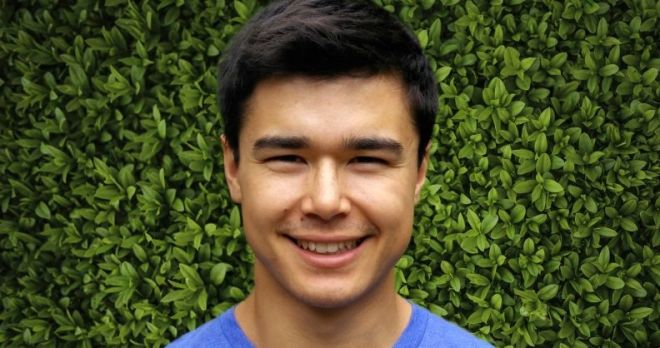How to nail the MSRA

Almost as dreaded as MRSA, the Multi Specialty Recruitment Assessment (MSRA) has recently become a key part of any application to specialty training in the UK for a variety of choices of specialty. Both James and Will managed to sneak their way into anaesthetic training before it was introduced, however our resident blogmaster Dr Rory Heath has recently sat – (and crucially nailed) – the MSRA, so he has a few helpful tips and tricks to help you on your way.
What is the MSRA?
The MSRA is a standardised, written examination used to assess applicants hoping to enter specialty training in General Practice, Psychiatry (Core and CAMHS), Radiology, Ophthalmology, Obstetrics and Gynaecology, Community and Sexual Reproductive Health, and Neurosurgery – but if you’re here on Anaestheasier, it’s more than likely that you are taking the MSRA to apply for anaesthetics.
Why does an application to anaesthetics require the MSRA?
ANRO, the Anaesthestics National Recruitment Office, have written their own statement to say that the MSRA
‘has been designed to assess some of the essential competences outlined in the Person Specification and is based around clinical scenarios’,
while HEE expands on this by explaining that the MSRA assesses
‘the foundation level of competence’
i.e. those competencies required to complete the Foundation programme.
But why?!
Who knows, but it likely comes down to a combination of the following two factors:
1) Selection
2) Feasability of selection process
Some might argue that the broad medical knowledge base required for a career in General Practice bears little resemblance to the narrow, highly specialised technical abilities required for a career of drugs, tubes and gas.
Others may suggest that a broad situational judgement-based assessment serves as a good baseline assessment of suitability to a variety of specialties, so this shouldn’t matter all that much. While many people readily show frustration at yet another set of exams – both are understandable perspectives.
Some people may also hope to expect that the MSRA falls out of use, as we continue to hope that coronavirus precautions may be further reduced, bringing back the hard-earned portfolio and face-to-face interviews. However, until then, the team at Anaestheasier want to make your life easier by creating a guide to help you nail the MSRA, if you end up having to sit it. (Probably).
- The MSRA forms part of the selection process to interview, where you face-to-facers will shine and your portfolios will be very helpful.
- The MSRA forms 15% of your application score – a sizeable chunk of your aggregate score that you should aim to optimise for application success!
How is the MSRA structured?
The MSRA is structured in two parts;
- Professional Dilemmas (PD) section, and the
- Clinical Problem Solving (CPS) section
Professional Dilemmas:
Do you remember the Situational Judgement Test at medical school? Well you’re about to experience a whole world of Deja vu!
The PD section ‘provides scenarios in the workplace for applicants to demonstrate their judgement about the most appropriate behaviours in that context’ (HEE).
The PD section is 95 minutes long, asking 50 questions, but note that this was the arrangement for me, and may be subject to change over time, so please check that this is the same with your cohort!
Clinical Problem Solving:
This tests an individual’s application of knowledge to make clinical decisions. HEE say that this knowledge is based upon the Foundation Programme competencies. In other words, Do as a sensible F2 would do.
In our experience, the MSRA is less knowledge heavy than other entry exams (e.g. MRCP part 1), but still requires active learning and revision above and beyond the clinical exposure of working and attending teaching within the foundation programme. Some find luck when winging it – the rest of us might consider taking a proactive approach of systematic learning and revision.
Tips for the MSRA
Tips for PD:
Many people find it difficult to revise for SJT-type exams – after all, the temptation is to think that it tests your intrinsic moral substance (character flaws be damned!)
Your score isn’t all inevitable though, and there are definitely things to do to know the test, and although you don’t know the markscheme, you can know what the markscheme is based upon.
- Know your time. 70 questions over 95 minutes = 114 seconds per question. Practice mock exams with a clock running.
- HEE describe three core competencies which their questions aim to test; Professional Integrity, Coping with Pressure, and Empathy and sensitivity. These are outlined on this document here, page 4/9. It’s worth a read to understand what they expect from you, but you are already likely practicing these qualities in your daily life and work.
- Familiarise yourself with the GMC’s Good Medical Practice.
- Use a SJT question bank.
Tips for CPS:
- Know your time. The CPS paper asks 97 questions in 75 minutes = 46 seconds per question.
- The questions are ‘single best answer’ or ‘extended matching questions’. Read the question to know how best to answer it!
- The questions test various ‘domains’ of clinical practice:
- Investigations; Diagnosis; Emergencies; Prescribing; Management.
- This is a useful frame work for any revision notes you might make about a particular condition e.g. asthma.
- Question banks are very helpful, especially those with a ‘textbook’ feature – making the above point easy to achieve.
General Tips:
Answer all the questions as there is no negative marking. You miss all the shots you don’t take!
Start revising little and often, early – it will help to consolidate information before the exam and will avoid last minute panic. Furthermore, learning whilst working makes both activities more fun – You will feel rewarded the next time you remember and implement recently learned information into your practice!
That’s it from us – Good luck, and if you have any useful tips of your own, please share them in the comments!
Recommended resource

Dr Rory Heath
Anaesthetics Core Trainee
